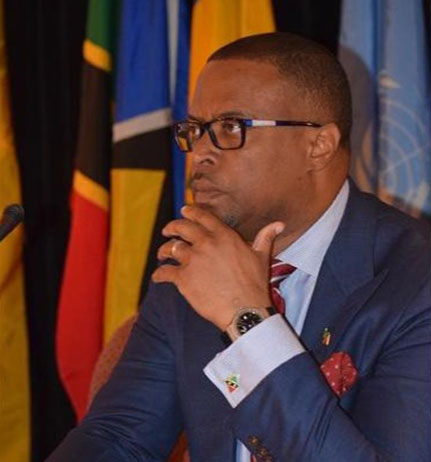BASSETERRE, ST. KITTS, APRIL 21ST, 2016 (PRESS SEC)
High-level government policymakers from the Caribbean, including Acting Prime Minister Honourable Vance Amory and Minister of Foreign Affairs, the Honourable Mark Brantley, are convening today and tomorrow at the St. Kitts Marriott Resort for the Fourth Meeting of the Caribbean Development Roundtable.
The Roundtable discussion forms part of the Twenty-Sixth Session of the Caribbean Development and Cooperation Committee (CDCC). The CDCC is a permanent subsidiary body of ECLAC, the United Nations Economic Commission for Latin America and the Caribbean.
Also in attendance are officials from other UN bodies, regional development institutions including the Caribbean Development Bank and the Eastern Caribbean Central Bank, and international development partners such as the Commonwealth Secretariat, the World Bank, the Brookings Institution, and the Inter-American Development Bank.
This year’s Roundtable is exploring possible debt relief options for heavily indebted countries in the subregion. Ms. Alicia Bárcena, Executive Secretary of ECLAC, said this is in light of the fact that Caribbean countries are among the most highly indebted in the world due in large part to unanticipated external shocks, structural factors and extreme weather events.
“Today, to achieve structural change, we need the Caribbean to be a real player on the table,” Ms. Bárcena said at the Opening Ceremony. “The rules are being made in other fora and then they come to the Caribbean, like in the case of the correspondent banking, and I think we need to put a strong voice behind you and we want to be with you in this process,” ECLAC’s Executive Secretary added.
Ms. Bárcena was referring to the situation where a number of major banks have either terminated their correspondent banking relationships with banks in the Caribbean, or threatened to discontinue them. The practice is called “de-risking.” According to the International Monetary Fund, as of June 2015, at least 10 banks in the region in five countries have lost all or some of their correspondent banking relationships.
Prime Minister Dr. the Honourable Timothy Harris weighed in on this issue at the UWI Cave Hill Campus on March 31st when he delivered the Annual Prime Minister’s Lecture held under the auspices of the University of the West Indies Students Today Alumni Tomorrow (UWISTAT) Vice Chancellor’s Student Ambassador Corps.
“You must have heard the ongoing and deepening concern within the region regarding the issue of correspondent banking, how small and large states within the family of CARICOM, such as Belize and Montserrat, are losing correspondent banks,” Prime Minister Harris said, adding, “Who is next? This is a matter of concern because you are aware that without the correspondent banking relationships we become blockaded, in real terms, from participating with the rest of the world. We would be unable then to participate in an arena in which we must participate, if we are to survive. So this is a troubling matter and calls into play how we as a region will restructure our economies.”
Tomorrow (Friday, April 22nd), Earth Day, Prime Minister Harris will be at the United Nations for a ceremony marking the signing of the Paris Agreement on climate change. As many as 170 world leaders are expected to ratify the Paris Agreement tomorrow (Friday), the first day of the signing period, thereby setting an international diplomacy record. In the Prime Minister’s capacity as CARICOM’s Lead Head on Human Resources, Health and HIV, he will also meet with Dr. Edward Greene, the UN Secretary-General’s Special Envoy for HIV in the Caribbean.
(Press release courtesy of the Office of the Press Secretary)





